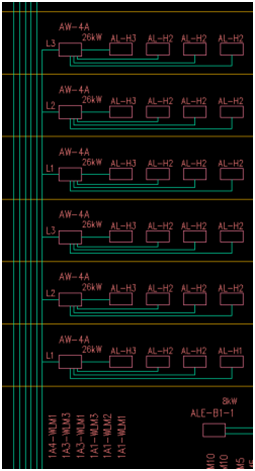Help you solve the electrical load calculation that is difficult to calculate(1)
When it is impossible to achieve complete balance among the three phases
Calculation principles for three-phase unbalanced loads
1. Single phase loads should be evenly distributed among the three phases as much as possible.
When it is impossible to achieve complete balance among the three phases, it is advisable to take three times the maximum load of one phase as the equivalent three-phase load, and use this equivalent three-phase load as the basis for calculating the current in the corresponding circuit and selecting equipment such as switches and conductors for the corresponding circuit, excluding the selection of three-phase power transformer capacity.
When the total calculated capacity of single-phase load is less than 15% of the total calculated capacity of three-phase symmetrical load within the calculation range, all calculations should be based on three-phase symmetrical load; When it exceeds 15%, the single-phase load should be converted to an equivalent three-phase load and then added to the three-phase load.
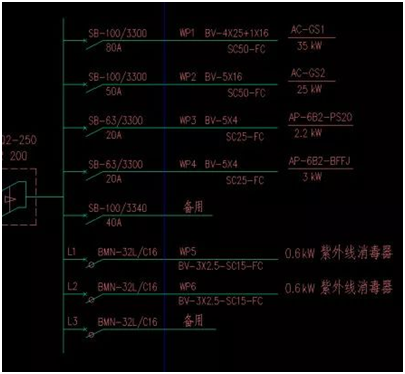
Total capacity of three-phase load (WP1~WP4):
35+25+2.2+3=65.2KW
Single phase load total capacity (WP5~WP6):
0.6+0.6=1.2KW
1.2/65.2=0.018<15%
All calculations should be based on three-phase symmetrical loads.
The equipment capacity of this distribution box is: 65.2+1.2=66.4KW
When the total calculated capacity of single-phase load is less than 15% of the total calculated capacity of three-phase symmetrical load within the calculation range, all calculations should be based on three-phase symmetrical load; When it exceeds 15%, the single-phase load should be converted to an equivalent three-phase load and then added to the three-phase load.
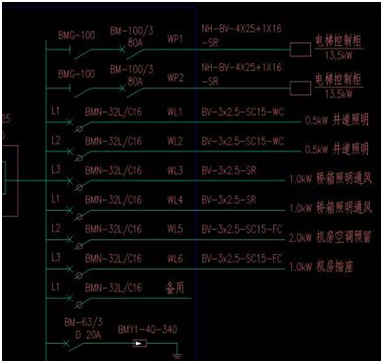
Total capacity of three-phase load (WP1~WP2):
13.5+13.5=27KW
Single phase load total capacity (WL1~WL5):
0.5+0.5+1+1+2.0+1.0=6KW
6/27=0.22>15%
So the single-phase load should be converted into an equivalent three-phase load, and then added to the three-phase load.
Single phase load in the diagram:
L1 phase=0.5+1.0=1.5KW
L2 phase=0.5+2.0=2.5KW
L3 phase=1.0+1.0=2.0KW
The equivalent three-phase load is three times the maximum phase, which is 7.5KW
The equipment capacity of this distribution box is: 27+7.5KW=34.5KW
When the total calculated capacity of a single-phase load exceeds 15%, the single-phase load should be converted to an equivalent three-phase load and then added to the three-phase load.
Calculation Example of Residential Engineering Using Coefficient Method
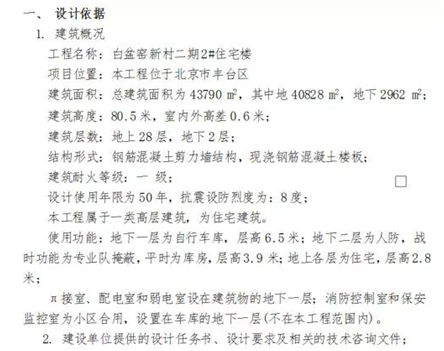
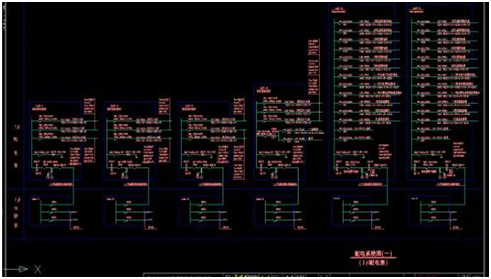
Distribution cabinet system
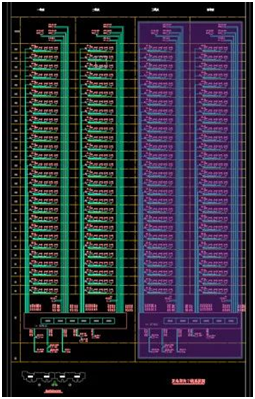
Vertical Distribution Main Line System Diagram
